#bernays
Explore tagged Tumblr posts
Text

15 notes
·
View notes
Text

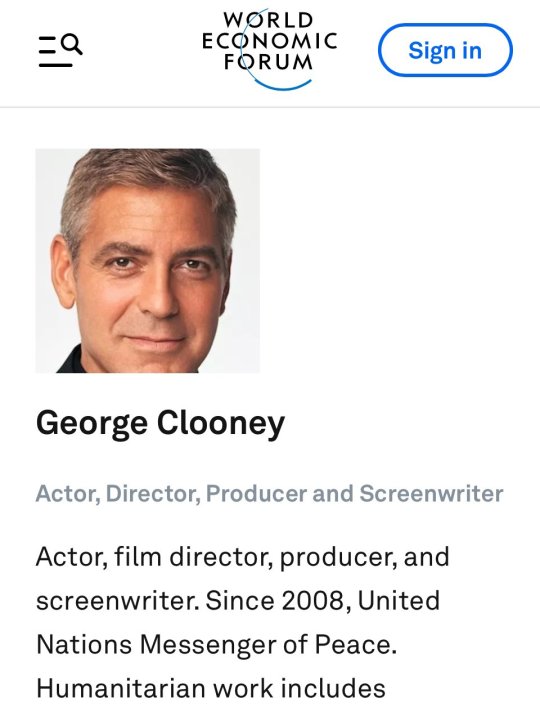
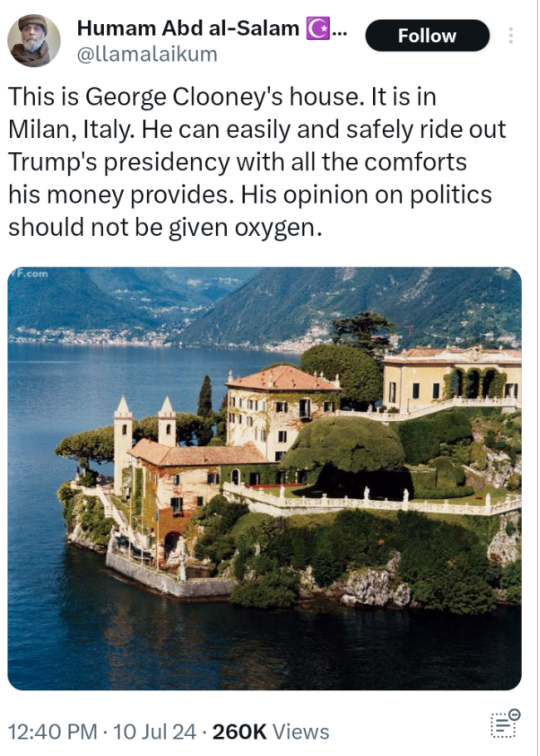





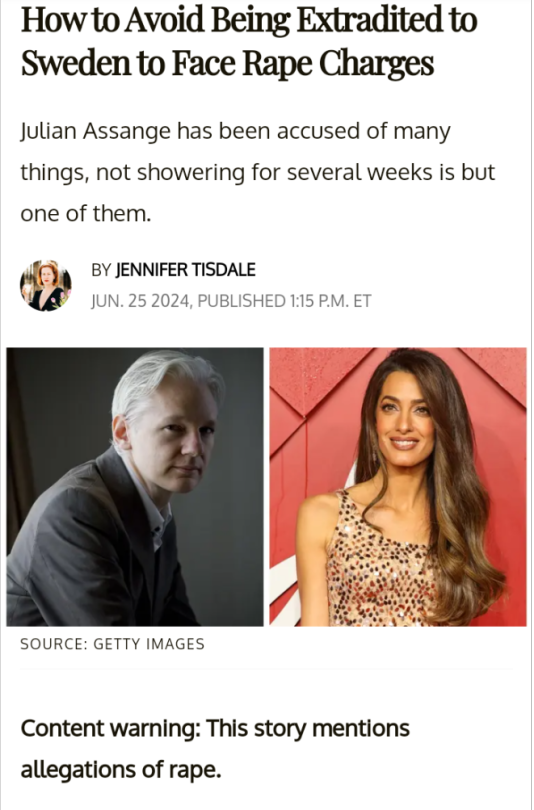
BY JOHN DILILLO
NOV. 11, 2021
"Method acting is a Hollywood tradition that’s netted many an Oscar and irritated thousands of coworkers, but it’s likely never been this stinky before. For The Power of the Dog, the new Netflix psychological-thriller-meets-cowboy-romance, Benedict Cumberbatch joins the unwashed ranks of celebrities like Jake Gyllenhaal and Ashton Kutcher. To stay fully in character, the actor didn’t shower for six days.
It was a choice wholly encouraged by Oscar-winning director and writer Jane Campion.."
YOU DONE FUCKED UP, CIA, AND SCIENTOLOGY CONNECTED, GEORGE CLOONEY .
"The Clooney family connections to Washington and politics at the highest level is nothing new. Fun fact, his maternal great-great-great-great-grandmother, Mary Ann Sparrow, was the half-sister of Nancy Lincoln, mother of, you guessed it, Abraham Lincoln.
Not only is Clooney related to Washington royalty, he’s not the first person in his family to make it big in entertainment.
Cabaret singer and actress Rosemary Clooney was George Clooney’s aunt, the sister of his father Nick Clooney. George’s other aunt, Betty Clooney, was also a famous singer in the 1950’s. And yet another famous singer, “You Light Up My Life” singer Debby Boone, is George’s cousin. Recall that his father was a gameshow and TV host and it almost starts to seem as if being from certain families makes it a lot easier to break into Hollywood.
Clooney was raised a strict Roman Catholic and attended Catholic schools where he served as an altar boy from the time he was young. By middle school Clooney had developed Bell’s Palsy, a type of facial paralysis. Bell’s Palsy is rare in adolescents, as it’s most commonly linked to sexually transmitted herpes and extreme stress. It’s worth noting that Clooney’s fellow United Nations and Council on Foreign Relations pal Angelia Jolie has also long struggled with Bell’s Palsy. In Clooney’s case, what with the rampant systemic child sex abuse we are learning has gone on for decades in the Catholic church and the connection between Hollywood, child sex abuse and Hollywood-linked military programs such as MK Ultra (recall Clooney’s father’s military ties), his having Bell’s Palsy as a child is certainly an interesting side note....Clooney studied acting with leading Scientologist Milton Katselas at his Beverly Hills Playhouse for 5 years, from 1982-1987.
In the book co-authored by the now-deceased-under-extremely-mysterious-circumstances Andrew Breitbart, Hollywood, Interrupted: Insanity Chic in Babylon — The Case Against Celebrity, Milton Katselas is discussed at length. As well as Scientology in general and it’s connection to Hollywood.
'Here’s the cliff’s notes: Think of Scientology’s presence in Hollywood as an intelligence dragnet to identify those who will trade compromising secrets for power and influence.'
One of the very top lieutenants of that intelligence operation, for decades, was Milton Katselas.
July 15, 2007, New York Times, ‘The Actualizer’: “Students have left Katselas’s school, the Beverly Hills Playhouse, because of the pressure they felt to join the Church of Scientology… they could not ignore how many of their classmates and teachers were Scientologists … and the assorted weirdness..."
#GEORGE CLOONEY#CIA#CULT OF SCIENTOLOGY#HARVEY WEINSTEIN#MEGHAN MARKLE#SOPHIE HUNTER#JANE CAMPION#NETFLIX#BERNAYS#SABBATEAN FRANKISTS#CATHOLIC CHURCH#OPUS DEI#AMAL CLOONEY#JULIAN ASSANGE#MILTON KATSELAS#BELL'S PALSY#COUNCIL ON FOREIGN RELATIONS#HERITAGE FOUNDATION#TRUMP#BIDEN#MKULTRA#WHOEVER FUCKED WITH MY TWITTER MADE A BIG FUCKING MISTAKE#HOLLYWOOD#MIRAMAX#CBS
2 notes
·
View notes
Text
The Evolution of Media and Its Impact on Surveillance and Privacy Issues: A Family Legacy of Control?
Let's dive into the rabbit hole and explore how the evolution of media over time has led to the surveillance and privacy issues we face today in our digital world, and how one family's legacy might be influencing it all.

Let's rewind to the 1940s and 1950s when television was this fresh new medium on the block. Back then, programming was pretty limited, but as TV sets became more affordable and widespread, content started to diversify and reach broader audiences. The role of television in society began to grow, and with it came the government's increasing influence over media narratives.

The 1960s saw TV become even more politically engaged, with news outlets giving more coverage to social and political issues, like the civil rights movement and the Vietnam War. As television continued to evolve and diversify, it became a crucial tool for governments to spread their messages and manipulate public opinion.

Now let's fast forward to the present day, where the digital age has taken media to a whole new level. We consume information through various platforms, from social media to streaming services, which offer governments even more opportunities to collect data and keep an eye on us. And it's not just Big Brother watching us; we live in a world of browser cookies and sophisticated algorithms that track our every move.

Enter Edward Bernays, the "father of public relations," who believed that by understanding human behavior, one could create a more compliant and easily controlled society. It's no coincidence that his grand-nephew, Marc Randolph, went on to become the first CEO of Netflix. The connection between media and manipulation runs deep in that family tree!
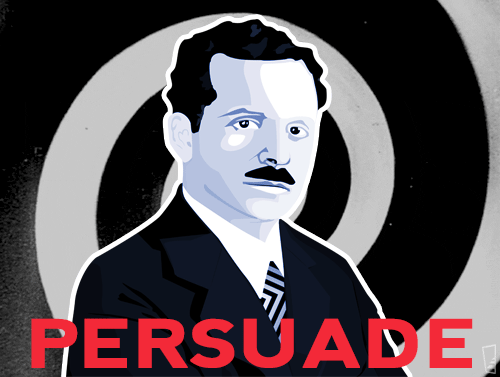
My hypothesis is that the studies and observations of Sigmund Freud, the founding father of psychoanalysis, have been passed down through the generations, from Bernays to Randolph. As a result, their methods and practices have evolved alongside media, making their influence on society even more potent.
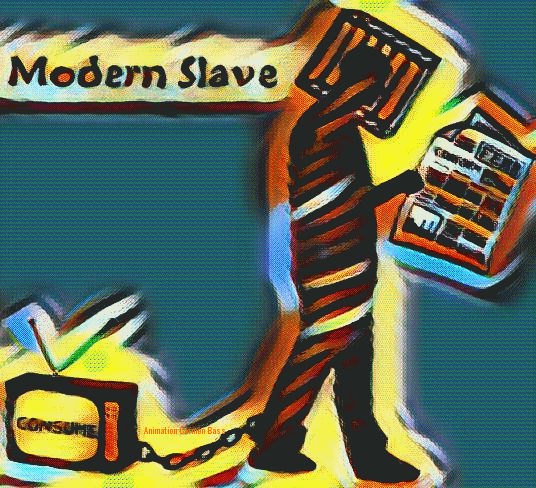
We can't talk about surveillance and privacy issues without mentioning the Patriot Act. Passed after the 9/11 attacks, this controversial legislation gave the government unprecedented access to our personal information without a warrant. This invasion of privacy has led to numerous lawsuits against the government for spying on its own citizens.

The evolution of media over time has played a pivotal role in shaping the surveillance and privacy issues we face today. As media continues to evolve and become more integrated into our daily lives, we need to stay vigilant and question the motives behind the narratives we're fed. The legacy of Freud, Bernays, and Randolph serves as a stark reminder of the power that media and manipulation can have over society.
- JOREEEZY
https://k4v3.com/

12 notes
·
View notes
Text
Edward Bernays' Influence
The AHA had gotten lucky, but it wasn’t dumb luck. It was the brilliance of the man at the helm of the PR firm P&G had retained, Edward Bernays.
Bernays is widely recognized as the de facto inventor of the public relations industry, and he’s probably the twentieth century’s most influential person that most of us learn nothing about. He wielded influence behind the closed doors of the most powerful corporations and political leaders in the world, including at least four presidents, several multinational companies, and the Central Intelligence Agency. He’d begun in advertising, where he revolutionized the industry. Before Bernays, many advertisers tended to tout the practical, rational aspects of their products, things like durability and effectiveness. Bernays taught advertisers to manipulate people’s emotions instead. He’d learned about the power of emotions from an uncle he’d grown up admiring, none other than the father of modern psychiatry, Sigmund Freud.
Bernays took Freud’s theories about the inner workings of the individual mind and applied them to groups of individuals, so that those in power, his corporate and government clients, could better control the population. Bernays wondered, “If we understand the mechanism and motives of the group mind, is it not possible to control and regiment the masses according to our will without their knowing it?”35 For Bernays, gifted with mind-control skills befitting an Orwellian villain, the answer was clearly yes.
It may be impossible to overstate the degree to which Ed Bernays influenced the culture of the twentieth century, for better or worse. In the late 1920s, he’d had a hand in ad campaigns for the American Tobacco Company calling cigarettes “Torches of Freedom.” This equated smoking to an act of emancipation, thus elevating women who smoked from their status as “trashy” while also giving them a sense of power. The Virginia Slims advertisements of the 1970s built its brand concept on Bernays’s initial image of female smokers as modern, liberated women. If your tap water is fluoridated (as it is for nearly three-quarters of the US population36), that’s thanks to Bernays. In the 1940s and 1950s, he worked on behalf of the US Public Health Service to convince the American public that water fluoridation was safe and beneficial to human health. The industry needed some good PR to clean up its image because of where fluoride comes from. One of the most common forms of fluoride added to our water here in the United States is fluorosilicic acid, which is derived from the scrubbing systems of the phosphate fertilizer industry. In other words, chimney soot from industrial plants. Of course, strict regulations ensure it gets cleaned up and rendered safe for consumption.
His influence was not limited to the United States. In the early and mid-twentieth century, Bernays’s work on behalf of the United Fruit Company impacted a vast swath of the political landscape across Central and South America. Bernays used many tools from his kit of public relations techniques to promote the interests of United Fruit. He worked with the CIA and other agencies to create a propaganda campaign portraying the democratically elected president of Guatemala as a communist—and a threat to US interests—which ultimately led to his removal from power. This had a chilling effect on democracy and social justice movements in those countries, as governments were more likely to be overthrown if they pursued policies that were seen as threatening to US business interests.
Bernays not only knew how to manipulate people, he knew how to get people excited about being manipulated, a process he describes in detail in his 1947 book, The Engineering of Consent. The book enumerates a variety of persuasive techniques, including propaganda, advertising, and other forms of mass communication, that he used to create seemingly any desired response from the public. While today we might think differently, he didn’t see any problem with using psychology for these purposes and in fact believed his work was essential and beneficial. He felt it was important for educated elites to control the people he considered uneducated. It was good for commerce, capitalism, and the democratic process itself. “The conscious and intelligent manipulation of the organized habits and opinions of the masses,” he had written in an earlier book, “is an important element in democratic society.”37 In other words, he and his clients know better about what’s good for us than we do.
One of Bernays’s favorite manipulative techniques involved tapping into the immense psychological power of medical doctors. Doctors were a key instrument for Bernays to choreograph behavior “because a doctor is an authority to most people, regardless of how much he [the doctor] knows, or doesn’t know.”38 Citing his 1993 interview with Bernays (who was 102 at the time), journalist Christopher Bryson wrote, in a book about fluoride, “‘You can get practically any idea accepted,’ Bernays told me, chuckling. ‘If doctors are in favor, the public is willing to accept it.’”39 One of Bernays’s favorite tactics for promoting new ideas and products to the public was to stress a claimed public health benefit. He described its effectiveness as “child’s play.”
By catching Bernays’s attention, the AHA hit the jackpot. Thanks to Bernays, the AHA’s many budgetary concerns evaporated overnight. Certainly, companies had paid individual doctors to endorse products before. But this was a whole other category of relationship. The AHA represented an entire specialty of medical doctors with ambitions to lead the conversation on heart disease. The money would be used for everything the AHA had hoped to accomplish. It was enough to fund both cardiovascular research and nutrition education programs for the public. Dr. Keys and the AHA had unknowingly become the benefactors of more than money. They’d been handed the golden ticket: a proven and winning formula with a track record of phenomenal success.
In one fell swoop, Bernays helped take the AHA “from its unimportance,” as he described it during the 1993 interview, “and made it a large, effective organization.”40 The $1.74 million that the association received because Bernays selected its name from the pile of possible contest beneficiaries rocketed the newly reformed AHA off to a stellar start, converting it from a collection of egotistical cardiologists into a national powerhouse. This infusion of money, worth about $30 million in today’s dollars, provided the AHA with the funds it needed to become the dominant force in cardiovascular research, just as the ambitious expansionists had envisioned. More than just a professional society with a research and education arm, the AHA had joined the ranks of true influencers. Or, as Bernays described it, “those who manipulate the unseen mechanism of society [and] constitute an invisible government which is the true ruling power of our country.”41
35. Edward L. Bernays, The Engineering of Consent (Norman: University of Oklahoma Press, 1969).
36. “Water Fluoridation Data & Statistics,” Centers for Disease Control and Prevention, reviewed June 9, 2023, www.cdc.gov/fluoridation/statistics/index.htm.
37. Edward L. Bernays, Propaganda (Brooklyn, NY: Ig Publishing, 2005).
38. Christopher Bryson, The Fluoride Deception (New York: Seven Stories Press, 2004), 159.
39. Bryson, Fluoride Deception, 159.
40. Larry Tye, The Father of Spin: Edward L. Bernays and the Birth of Public Relations (New York: Picador, 2002), 74.
41. Bernays, Propaganda, 37.
1 note
·
View note
Text

"The manipulators of political public relations – bolstered by Madison Avenue marketing firms, the mainstream media complex, and deep-pocketed dark money donors – are never at a loss for how to manipulate people to their bidding…"
READ THE FULL ARTICLE AT: https://www.undergroundusa.com/p/what-we-need-to-understand-as-we
SHARE & EDUCATE
What We Need To Understand As We Prepare For Election Season…
#Propaganda#PR#Manipulation#PoliticalPropaganda#Lippman#Bernays#Alinsky#PoliticalMessaging#Neofascists#Progressives#HillaryClinton#Lawfare#Socialism#Communism#Elitism#Globalism#Fascism#Corruption#Constitution#BillOfRights#Marxism#FreeSpeech#USA#Woke#Democrats#Politics#Government#News#UndergroundUSA#Truth
1 note
·
View note
Text
Three-Eyed Truths: Creative Nonfiction as Mixology of Meaning
“Because it is idiotic. Writing when there’s nothing to say.” – Aldous Huxley, Brave New World
I’m living with the ghosts of unsubstantiated doubt. Myriad voices, student debts unpaid, hollow words from the mouths of the talking heads on TV.
Recently I completed a unit for my degree called ‘Creative Nonfiction.' In class we spent a lot of time thinking about and discussing the idea of truth—how it operates, how we approach it both individually and socially, how it’s represented and disseminated. What stood out most to me—and what made it to date one of my favourite courses during the degree—was the extreme diversity with which one can approach something like ‘creative nonfiction.’ Built upon the foundations of a hybrid form of journalism and literary fiction à la Truman Capote’s In Cold Blood, the term has also come to represent a range of contemporaneous pioneers of artful ‘fact writing’ such as John McPhee, Gay Talese and Tom Wolfe in what would eventually be loosely thought of as the ‘new journalism’ movement. Later, critics and writers would grapple with several terms which attempted to convey a more appropriate grasp of its variable core: ‘journalit,’ ‘new’ or ‘high’ journalism, ‘faction,’ to name a few. The practice seemed to be open to a diverse range of styles, including, in the words of Barbara Lounsberry, such texts as "artful memoirs, autobiographies, biographies, histories, travelogues, essays, works of journalism, forms of nature and science writing, and ingenious combinations of these forms." According to Wolfe, what results is
a form that is not merely like a novel. It consumes devices that happen to have originated with the novel and mixes them with every other device known to prose. And all the while, quite beyond matters of technique, it enjoys an advantage so obvious, so built-in, one almost forgets what power it has: the simple fact that the reader knows all this actually happened.
Scene is what underlies "the sophisticated strategies of prose" in Wolfe’s rendition of the ‘new journalism,’ and it seemingly still underlies the impetus of creative nonfiction, or what Lounsberry calls ‘literary’ or ‘artistic’ nonfiction in its current manifestations. We might however wonder about Wolfe’s assertion that an audience places an implicit epistemic trust in these narrative accounts, in knowing that it "all actually happened" despite this being the obvious appeal behind its composition and consumption.
As the decades passed, the once-authentic energy surrounding ground-level narration has become blurred by an unstoppable procession of small, yet increasingly more apparent dissonances: tiny ambiguities, according to Phillip K. Tompkins in Capote’s reporting of facts and quotations regarding one of his portrayed killers, Perry Smith; the seduction and betrayal of journalists, to paraphrase Janet Malcolm, as they circle their subjects and reconfigure their essence into an aesthetic frame; Janet Cooke’s Pulitzer Prize-winning story about an 8 year old heroin addict titled ‘Jimmy’s World’ which was revealed to be entirely fabrication; the proliferation of market-editorial online (have a quick look at most fashion, food or entertainment blogs); or the turbulent permutations of visual authenticity through the rendering of the photograph, film, documentary, news cast and ‘reality television’ show. Today, a program like Netflix’s Making a Murderer exemplifies this problematic relationship between the producer of a representation, its subject and an audience—to speak about certain issues becomes dangerous and potentially harmful, no matter how carefully researched, and filmed over however long a period of time.
And yet, the problem isn’t resolved by simply saying that such a program shouldn’t be made: if that’s the case, then what are we permitted to speak about? And who would (or could) decide such a thing?
Truth is, perhaps, the major issue, and trust in an author, a voice, a director, or any utterance, image or narrative representing a truth-relation—whether intended as casually playful or appealing to extended thought—is in a state of extreme deficit. In her book No Logo, Naomi Klein outlines the intensive market drive to co-opt culture within the confines of branded ideology. In recognition of her long-fermenting existential angst in the absence of an authentic cultural identity Klein laments "[w]hat haunts me is not exactly the absence of literal space so much as a deep craving for metaphorical space: release, escape, some kind of open-ended freedom." We might well recognise here the dark inversion of the self-assured words of Edward Bernays, whose infamously titled Propaganda begins:
The conscious and intelligent manipulation of the organized habits and opinions of the masses is an important element in democratic society. Those who manipulate this unseen mechanism of society constitute an invisible government which is the true ruling power of our country.
In Aldous Huxley’s Brave New World it was the malcontent-turned-exile Helmholtz Watson—dubbed with trepidation by his superiors "a little too able"—who asks "how can one be violent about the sort of things one’s expected to write about? Words can be like X-rays, if you use them properly-they’ll go through anything. You read and you’re pierced." Much like the dystopian warnings resonating throughout Huxley’s stories and essays, it seems maybe Bernays’ ‘vision’ (and dare we say his misappropriation of the medical intentions behind psychoanalysis?) has over time become realised, ingrained, internalised, and in its final form proliferated so far out of control that no conceivable force exists within either the human appetite, nor our intellectual apparatus, to entirely contain or satiate it.
We have also to wonder about the widespread popularity of such cultural minutiae as the TED talk, the YouTube vlogger, or the standup comic and the many slight variations between these forms. We’ve all felt the intractable pull of marketised double-speak. For the most part, Coca Cola is a brown, (overly) sugary liquid substance, but the conversation surrounding Coke changes our perception of it. Coke is powerful, prestigious, trusted. It certainly doesn’t leap out as the kind of substance that, according to Klein, would cause its producers to co-opt classrooms and university lectures in a demand for "the amount it paid for … vending rights" at The University of British Columbia "to be kept secret for reasons of corporate competitiveness." When I first read Bernays I was troubled, to say the least. I found his unrepentant call for manipulation unforgivable, and every adman and CEO and marketing guru-turned-politician seemed merely a further aberration of that initial spark to control through obfuscation.
I’m still troubled, at least to an extent—but I’ve come to realise this unease is only half of a more detailed picture. Huxley’s dystopian novel was brilliant, not because it merely showed the seductions of manipulation through propaganda, but also because it challenged our ideals regarding a utopian state: at what cost do we uphold the value of a contented and stable population? Where do we draw the line between a stable sense of self and a disproportionate relationship to reality? At what point can we recognise our individual social agency as one which believes things only "because one has been conditioned to believe them"?
The full picture necessarily recognises that we have allowed—and continue to allow—this void of meaning and the increasingly aggressive branding of thought. While it’s one thing to repudiate the kinds of notions that Bernays’ propagation has spawned—for a good example check out his ‘Torches of Freedom’ campaign—it’s another thing to recognise how we co-opt these manipulations, and through this recognition learn to subvert the harmful aspects of a spectacle-driven media setting and its resultant mindset. This tension leads to further questions about whether marketing in and of itself is inherently negative—which of course, it isn’t, at least in no clear way more-so than general communication, rhetoric as a device, or even any representations whose prime function is the play of semiotics. What’s harmful is the underhanded impetus to control the entire conversation, which over time has lead to the complete annexing of the word in its basest form and a compulsion to define self (and by implication social relation) through buying power. But Bernays didn’t invent the game, as much as he may have changed the magnitude with which it’s played. In its very first episode, Mad Men’s mythical conman Don Draper reminds us that "[p]eople were buying cigarettes before Freud was born."
Suffice it to say, my appetite was drawn towards this nexus point of epistemic intrigue evident in the composition of creative nonfiction, and the resultant ambiguities which lead to its demarcations between fact, art and propaganda. During my undergrad majoring in philosophy and english I became focussed on ideas surrounding semantics, semiotics, epistemology and ideology, allowing me to gain some understanding of German Idealism, Psychoanalysis and the interesting mutations throughout continental philosophy that these movements inspired. It also brought me towards a brief investigation of literary criticism with a focus on a few of the more recent movements which sprang out of the 1960s through the 90s. I enjoyed these studies immensely and recognise that one could spend an entire lifetime on any of these particular points of investigation and still never be left in want of wonder. I suppose that’s part of the appeal of timeless—and often unanswerable—questions: they tend to provide for an infinite variation of interpretation and mutation of thought.
Despite this enthusiasm for my undergraduate studies, I couldn’t help but feel that something else was lacking from these investigations. In his Republic Plato talked about the tripartite soul, or psuchê of man, roughly dividing these up into the body, the mind and the spirit as is reflected in his idealised state. Plato may have had his own tyrannical undercurrents evident in the ‘philosopher kings’ he placed as the rulers of his utopia, but it seems his conception of the triangulation of the human experience struck a resonant cultural nerve, an image that has carried Pythagoras’ numerical esotericism as far as the Christian mythos and through to other pioneers of thought including (but not limited to) Baruch de Spinoza, Georg Wilhelm Hegel, Sigmund Freud, Charles Sanders Peirce, and so the list goes on.
I grew up immersed in a family environment that placed exploration—and by implication, a sense of open-mindedness—before anything else. Although schooled and socialised within a Christian setting, my home life, and my teachers, parents, brothers and sisters encouraged a relationship with any form of knowledge, be it through various forms of art, timeless texts, pop culture on television, or the spiritual traditions found throughout the world. This translated into a love of language and an enthusiastic tendency to explore mindsets which directly challenged my own. I took a liking to english in high school, and to a lesser extent art and history classes. I went back and forth between english, psychology and philosophy in my undergraduate, finally to arrive in my aforementioned degree, thoroughly enthused yet without any discernible drive towards a particular career choice.
If it was my studies in philosophy and literary criticism that satiated my intellectual drive, and if my bodily appetite has been thrust towards the changing forms of creative nonfiction, there still remained a question of the third element, the synthetic aspect of Hegel’s formulation, the intuitive approach of Spinoza and the egoistic genesis of Freud. That void of transitory meaning, I feel, can only be approached by focussing on aspects of life which might otherwise be considered too far removed from the realm of serious investigation or consideration, and which resides around my subjective essence—that which balances my sense of self with the wisdom of logos preached by the philosophical canon. Sometimes it’s only by going to the extreme fringes of society and social ideation that we can gain a more adequate picture of the process as a whole.
In this sense, I wonder where is the place for colour in life? Where is the place for mythos? Where’s Rumi and his "fattened bird as food and serpent and snake" and his language which often defied its own meaning, which danced between descriptors and resisted the reductive scalpel of the formalists and deconstructionists alike? What place for Crowley and his mnemonic susurration? What about the poetry of Blake, or Swedenborg’s strange mysticism? Where do Pokémon or the fervid spirits of David Lynch’s world fit into the grand history of ideas? What of the bizarre explorers of science whose names can’t be mentioned? The Tim Learys and Robert Anton Wilsons? What of Carlos Castaneda and his thrust from acceptable anthropology into the truly unknown? I’m interested in the way mindless exposition can be important. The way speaking in tongues might be closer to the language of music. The way you can never write the fire of the mind, only imitate it. Words that simultaneously inspire and seek to put the mind to rest. If we think they’re not important, then it seems we might still not have fully grasped the impact of a culture co-opted towards capital as its master signifier.
This brings us, in a roundabout way, back to that matter of unsubstantiated doubt. Huxley’s savage (paraphrasing his amalgamate Shakespeare) defined a ‘philosopher’ as a "man who dreams of fewer things than there are in heaven and earth."
There’s a sense of reluctance in my attempt to write about my world without recourse to those implicit norms of my (extended) social setting, and in spite of what might be considered ‘proper’ creative nonfiction, whatever that means. The more serious academic might scorn my (sometimes seemingly disproportionate) appropriation of such a diverse range of thinkers and writers and cultural noumena, the more artistically inclined wordsmiths may equally dismiss my writing as lacking in flow and form and a more figurative reading.
In conversation with John the Savage, Huxley’s controller said of God "he manifests himself as an absence; as though he weren’t there at all." While I may not ever fully grasp what ‘truth’ is, what it means to myself and how it relates to others, all I can do is commit myself, with a sense of devotion towards discovering and rediscovering its approximation through my ongoing work. In this sense, no critic is my enemy except insofar as they may wish to impede the act of learning in itself.
To address the emotional spectre of a ghost with a conscious affirmation is not to dispel it entirely, so much as it is to dissipate its haunting presence.
1 note
·
View note
Text
DIGITAL GRAFFITI
“Most people are other people. Their thoughts are someone else’s opinions, their lives a mimicry, their passions a quotation.” —Oscar Wilde Commuters/consumers are dazzled by a sea of billboards above them in an otherwise dark cityscape, which unlike Vance Packard’s “Hidden Persuaders” or the ones in the short story and film “They Live,” these hoardings come right out and plainly state their…

View On WordPress
#advertising#agitprop#authoritarianism#bernays#blogging#capitalism#herman and chomsky#Hidden Persuaders#influencers#manufactured consent#monopolists#packard#propaganda#social media bubbles#they live
1 note
·
View note
Text

the right hand of edward bernays - ballpointpen on paper A2
#art#artists on tumblr#ballpointart#ballpointpen#contemporaryart#pencil#ball point drawing#dark aesthetic#dark art#rats#edward bernays#bernays
0 notes
Text






look for the name GIULIA (requested by @venusianight) | ann demeulemeester black sheer and silk asymmetrical top w/ scarf hood (a/w 2oo2), elena velez oval slit linen skirt in black, marithé + françois girbaud black leather stitched ankle booties (c. 2ooo's), serge lutens "l'orpheline" eau de parfum (black pepper, dry woods, incense), roberta bernays suede pillbox hat w/ attached scarf (c. 193o's)
#giulia#venusianight#name#request#outfit#hope you like !#ann demeulemeester#elena velez#marithé + françois girbaud#serge lutens#roberta bernays#hat#edp#perfume#boots#footwear#skirt#sheer#top#scarf#hood#black#dark#queue
81 notes
·
View notes
Text

Edward Bernays, Propaganda (1928)
nice rubber stamp, dumbass. whered you get it, the propaganda store?
205 notes
·
View notes
Note
I don't just how many times people will need to remind you that the Bridgerton book about Benedict and Sophie was published in 2001. Long before the real life Ben and Sophie got married. I have no idea why that's so hard for you to understand. It is just a coincidence. Yes, those do actually happen. Not everything is a fucking conspiracy. You really need to seek help for that unhealthy obsession of yours. Maybe if you do, your friends and family will start speaking to you again.
And need I remind YOU that Benedict was sold as a child, to the Birkin's, and Sophie Hunter is very close to, if not an actual cousin of David Birkin and a member of the same fucked up Solar cult. They were twinned and planned as a fucked up couple, long ago, or at least, that was the hope. You sickos have added pre-programming from his personal life, into a shit ton of projects that he has been in. Would you like to see some examples? FUCK OFF.
#benedict cumberbatch#sophie hunter#TWINNED BY CULT#BRIDGERTON#CIA PRE-PROGRAMMING#NETFLIX#BERNAYS#FREUD#MURDOCH
1 note
·
View note
Text

Maison Paquebot par l'architecte André Perrée, construction de 1930 à 1931, à Bernay, Eure, Normandie, France. - source Audrey Lefranc via Art Deco.
55 notes
·
View notes
Text
" Chi sono gli uomini, i quali, senza che noi ce ne accorgiamo, ci suggeriscono cosa pensare, ci dicono chi dobbiamo ammirare e chi disprezzare, oppure come dobbiamo considerare la proprietà dei servizi pubblici, le tariffe doganali, il prezzo del caucciù, il piano Dawes* o l’immigrazione? Sono sempre loro che ci consigliano l’arredamento della nostra casa, il menu quotidiano, il modello di camicia più elegante, gli sport da praticare, gli spettacoli da vedere, le iniziative benefiche meritevoli di aiuto, i quadri degni di ammirazione, e perfino i termini gergali da inserire durante una conversazione e le battute di spirito che ci dovrebbero far sbellicare dalle risate. Se volessimo compilare l’elenco degli uomini e delle donne che per la loro posizione sociale devono essere considerati come opinion maker, avremmo una lunga lista di nomi recensiti nel Who’s Who. […] Una simile lista comprenderebbe migliaia di persone. Tuttavia sappiamo che molte di esse sono a loro volta sotto l’influenza di individui, spesso noti solo a una cerchia molto ristretta. "
*Piano Dawes: definito da una commissione di esperti finanzieri appartenenti alle potenze vincitrici della I Guerra mondiale presieduta dall’americano Charles G. Dawes, contribuì molto alla ripresa del marco e degli investimenti Usa in Germania. [NdT]
---------
Edward Louis Bernays, Propaganda. Della manipolazione dell’opinione pubblica in democrazia, traduzione di Augusto Zuliani, Fausto Lupetti Editore, 2008.
[Edizione originale: Propaganda, New York: Horace Liveright publisher, 1928]
#Edward Louis Bernays#Propaganda#manipolazione#opinione pubblica#democrazia#Augusto Zuliani#masse#società dei consumi#consumismo#XX secolo#capitalismo#Stati Uniti d'America#politica#affarismo#corruzione#relazioni pubbliche#influencer#pubblicità#spin doctor#psicologia delle folle#subconscio#fabbrica del consenso#mente collettiva#irrazionalità#desideri#edonismo#narcisismo#comunicazione#multinazionali#immigrazione
12 notes
·
View notes
Video
youtube
The Machine (Pioneer of propaganda: Edward Bernays) *The science of control of the many by the few*
2:15 Notice how they use/weaponize women to push a bad habit & paint a method to shorten your life as a Rights issue.
When the agenda was profit, not agency of women.
That's how they manipulate our girls & ladies. They play on their natural altruism/power to assemble into community to fight for what's right through protest and the one's running the show are leading you off a cliff:
That's modern gynocentrism in a nutshell. Keep women at war with men, keep girls propagandized, keep their ego's radicalized, or fear monger them into being paranoid of men or just hating maleness.
The goal is destroying women's trust of men. And it doesn't help that corrupt men are working toward the same end from the other side.

When the best interest of both parties is having each other.
And they (puppetmasters) know it.
"The point of propaganda is to sell you a suggestion and make you believe it was your idea."
Propaganda is science. The cheapest form of warfare; It takes longer for sure but because it's a slow burn, it's that much harder to undo because it's so intimiately integrated. So patient and articulate.
You can't just re-write generations of cemented culture overnight, the people using it know how easy the mind is to break. Especially when an incentive is indulgence, hubris, lust, ego, insecurity, longing, desire, pain, trauma even.
It is an effective way to bring down a nation without firing a single warhead or expending a single soldier.
Convince the enemy to want their own destruction, trivialize their own livees or "eat each other". (Joker 2008)
Chani in DUNE PART Two is genius misdirection.

She represents the skeptic who sees the dangers of propaganda, the one going against the grain:
But the point the movie made was she was proven wrong because the propaganda wasn't a lie and the messiah produced results in a matter of days- so her credibility was shaken.
Miracles, a man of works disproved the naysayer, who was technically the only person using her brain. One woman, woman of reason. (RIp, to her friend who also shared her view)
Thus was she wrong because the messiah did come?
No. The overtone is skeptics are not to be trusted because the Messiah/Anti-Christ/Superman/Neo/Lisan Al-Gaib is true.
But Chani was indeed right, the propaganda was and is a means of control despite the fact that the messiah exists, she's still right.
The Fremen "Free-Men" had everything they needed to do exactly what Paul had them do, they didn't need him entirely, but their success rate was increased because of him but their liberation was ultimately in their hands. As Paula alluded to anyway.
The Masses, the little people, the infrastructure have the power.

Not Big brother, not the giants, but the people making the system work with the sweat of their labor have the power.
Chani was right.
Point being: Both the propaganda can be right, and be a means of control, a lie to affirm a pacifying effect. Both can exist at the same time.
Propaganda is a sociological weapon for the psychological, it could be used to take humanity further for the goal of good, fortify the wills of the youth instead of planting discord and confusino.
Train efficient children in a more practical school model, not enable a society where children are not even safe in schools.
Raise competent girls trained to be self-sufficient yet humble, trained to be accountable, mentored to preserve womanhood.
Thus resulting in women who are not dependent on the system for empowerment & charity and in fact are a dangerous force because they're not reliant for validation.
Which is why they will be conditioned to always need it. "GirlBosses" can be controlled. A woman who can carry her own weight is too controversial for the establishment. Hence why we “support all women” until they step out of line of the accepted narrative.
Productive men with their balls still attached, not running away from society & women but welcomed to the fold. Mentored to be stable, humble, responsible, emotionally competent, boys taught that empathy is not a woman thing but a human essential.
(Sounds heavenly)
But control or the illusion of it- can be used against people. Peace is boring to some, it's why that very simple model will never be a reality.
Some feel watching people burn is the way, it's why the traditional family has to be torn down, some believe chaos is the natural order, it's why you're never afforded peace in "peacetime".
War of the sexes, political wars, race wars, culture wars, always something to keep everyone's eyes in one direction. People must fight.
(That's what Ledgers JOKER represents= Anarchy):
"I'll show you. When the chips are down, these, ah, "civilized people"? They'll eat each other. "

The attitude being: Humanity & life is trivial. We're a tedious cause because we can be convinced to kill each other anyway or trained to romanticize genocide & violence.
“Vulgar masses.”
The fact that Joker was proven wrong during the ferry scene isn't the point, it's misdirection. It's the fact that Harvey (A man of power of the system/ A man whom the people honored) proved him right.
It's the fact that Joker was crazy, but had an argument.
It's not the fact that Thanos lost, it's the fact that he had an argument. He was wrong by means, but the why was right, that's the dangerous part.
The nugget of truth in the insanity is the seed, the argument is the propaganda, that's what it is dangerous. They're right and written to be so.
Through movies, tv shows games, comics, porn, fetishism (which just means obsession, doesn't always mean sex, being a Neet is form of fetishism/ literally just means *ZERO moderation/Doing too much*), books, drugs, addiction to youtube or tiktok, news, everything you see as a child, set into our ways as adults- Distraction.
Power is knowing, if you're distracted, you're least likely to know anything. Sometimes you don't want to know. More willing to give more of oneself & ones time to maintain the fix: Ie. "Minding my business", "Live and let live"
Apathy is law. Just like the Little Nightmares viewers, compliant and sterilized. Question nothing.

Genius model to condition people to want to remain sleep, aka The Matrix
They know what they're doing, that's why they're on top.
It's why they're called "Elites", not that they're better than you or immortal.
They know, that's it. They know.
Knowing is enough.
______________
One would reasonably say: "Coincidence, who the fuck puts all that effort in controlling people", "It's just a movie", think about it. Why are all these movies & mass media pushing the exact same thing.
No matter how many times a show or movie bombs because of a political push, they still push the same viewpoint. Because assaulting you, namely your kids is the goal, YOU will reject it, some won't, but the successors to your generation specifically might even support it.
Plant seeds in the next generation, the future.
And notice how the macro-companies that own these studios/companies aren't ran by you/us/ the people, normal people but instead upper echelons ran by bloodlines/ people you don't even know exist. People sooooo rich, but sooooo.....to themselves.
Celebrities are the visible "Stars" you see in the sky, but the people that own them, the people that fund them, you never see.
All these Agent Smiths, but we never see the Architect(s).
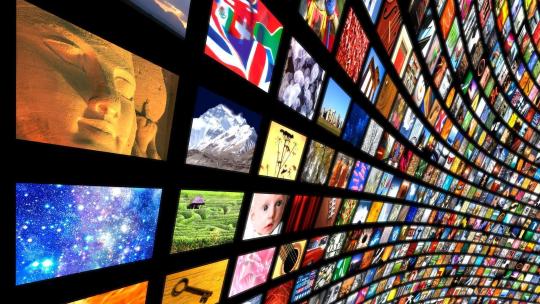
____________________
If you think it's petty, you're right, it is. If you think it's ridiculous, good, because it is, but the reality remains the same stubborn animal it was 50-100++ years ago.
Questioning this is not discouraged on my part, to question anything takes intelligence, and just because someone talks a lot doesn't mean they know what the fuck they're talking about.
So by all means, question what I say if it smells funky to you: But all I ask is---
#1 **Do Not Ignore it.** Just keep it into consideration.
#2 Don't stress over it, fear mongering isn't the point of being aware, the point of knowing what's going on with your culture thus you is building an immune defense mechanism to having your mind infiltrated any further.
Don't fear life or your society because aspects of it are designed to take advantage of you, not all of it is. Like going to the dentist isn't some grand plan to install trackers in your jaw, the lore of society is deep, but it's not that deep.
Don't fear it, just be aware.
_______________________
Example: I watched DUNE PART TWO the first time knowing it was anti-christ propaganda, I didn't clutch my pearls the entire time- I fucking enjoyed the shit outta that film.
I saw it 4 times before March ended while knowing exactly what it was, but I didn't watch it 4 times (or anything I watch) to dissect it or find things wrong with it.
Despite what it is (& no it's not perfect as a film), I watched it that many times because I liked it, you can still enjoy things and know what it is.
And cut some things out of your life because you know what it is. But you have to see and know. "You need to see."
The ability to discern and know the difference, the OPTION to even drop certain things, is control, agency.
The ability to "know" what it is you're seeing is the point of my or anyone saying anything, not fear: Awareness. The ability to see.
If someone is trying to scare you, they're weaponizing the truth (and sometimes, some people don't mean to their way with words/Internet charisma stats is just not where it should be to deliver the message in the best way possible).
The true design/purpose of truth is freedom. You have the option to do or don't. Vs just being stuck in NPC mode, just acting on impulse, one way and one way only. Zero agency.

That's what Jamis told Paul: "You need to see.", All seeing Eye.
Thanos had the will to do what felt needed to be done because he had the "curse of knowledge". Not many people know what that truly meeans.
That's why Oracle was top 3 one of the most powerful Matrix characters, not because she was the mother of the Matrix but she knew. She had "knowing".
___________
***Knowing and seeing are two different things.
You can see something and not know what it is. You can know what to look for and not see it.
Knowing what it is you see/ seeing it because you know: Is the point. Balance.
Not fear. Fear is just another means of control.
Can’t live a life if one fears seeing something, living in fear because you know something. That is just self-destructive.
______________
Otherwise, these cabals are the one's that began the slogan
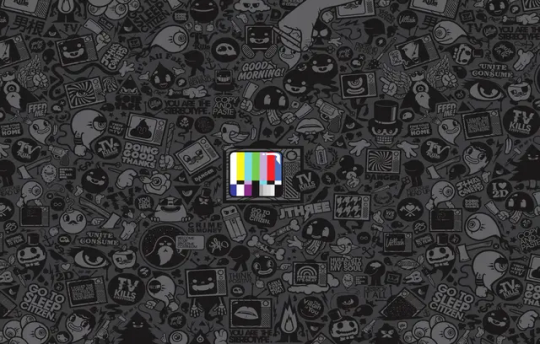
"Knowledge is power",
everybody knows the phrase, but not the lore behind it.
It has nothing to do with college or degrees, you know something useless and still be useless.
It's a taunt.
They know. NPC's, the uninitiated, the masses: don't know.
Part of the point of the quote is a nod to the initiated, and part of it is irony.
The art of mass persuasion.
#youtube#propaganda#edward bernays#control#suggestion#power is knowing#knowledge is power#the masses#the matrix was not just a movie#the art of persuasion#lessermook
11 notes
·
View notes
Text
Universal literacy was supposed to educate the common man to control his environment. Once he could read and write he would have a mind fit to rule. So ran the democratic doctrine. But instead of a mind, universal literacy has given him rubber stamps, rubber stamps inked with advertising slogans, with editorials, with published scientific data, with the trivialities of the tabloids and the platitudes of history, but quite innocent of original thought. Each man's rubber stamps are the duplicates of millions of others, so that when those millions are exposed to the same stimuli, all receive identical imprints. It may seem an exaggeration to say that the American public gets most of its ideas in this wholesale fashion. The mechanism by which ideas are disseminated on a large scale is propaganda, in the broad sense of an organized effort to spread a particular belief or doctrine.
— Edward L. Bernays, Propaganda
#edward bernays#quote of the day#quotes#คำคม#ceo#capitalism#economy#business#anti capitalism#money#greed#job#employment#school#teacher#student#children#parent#parenting#work#government#propaganda#new world order#advertising#mind control#creative#marketing#strategy#education#rich
3 notes
·
View notes
Text
We are dominated by the relatively small number of persons who understand the mental processes and social patterns of the masses. It is they who pull the wires which control the public mind.
Edward Bernays

51 notes
·
View notes